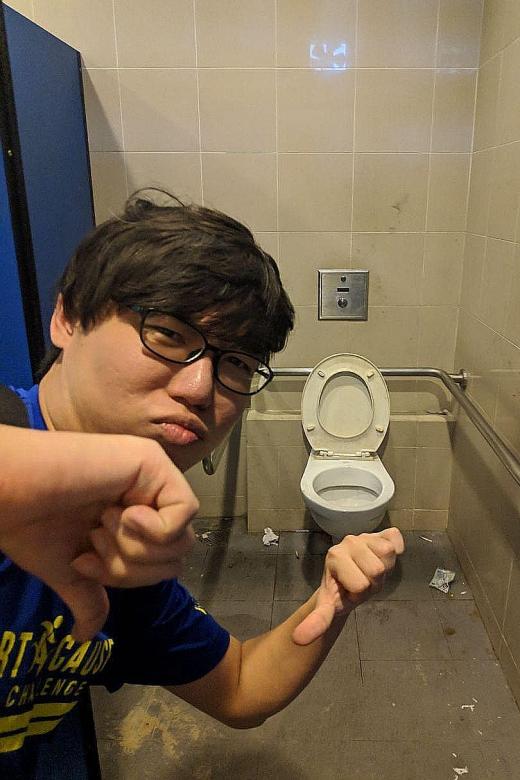
Nationwide study reveals poorer public toilet cleanliness
by Nia Sarah AzmyThe results of a nationwide study conducted from Jan 10 to Feb 7 this year revealed that much work still needs to be done to improve public toilet hygiene standards at coffee shops and hawker centres.
The Waterloo study, by Singapore Management University's (SMU) Senior Lecturer of Statistics Rosie Ching and 157 of the institution's undergraduates, found toilets at Bukit Batok, Telok Blangah and Tuas as the dirtiest, while those at Marina South, Tanglin and Changi were the cleanest.
Said Ms Ching: "I think many of us in Singapore emphasise delicious food much more... than Singapore being a clean city.
"And even then, the 'clean' talk is about clean streets, clean trains, clean public transportation, clean schools, clean work spaces, but few speak of clean toilets."
The study surveyed 1,290 toilet locations in 104 hawker centres and 1,181 coffee shops.
Some examples found in unclean toilets included dirty mirrors, dirty rubbish bins, torn posters, inadequate soap, bad smells, cracked or dirty toilet seats and filthy toilet paper dispensers.
Marina South topped the list for the cleanest public toilets with an average Toilet Cleanliness Index (TCI) of 94.16, with the coffee shop at Gardens by the Bay contributing the highest TCI, followed by Tanglin and Changi.
Coffee shops at Bukit Batok, Telok Blangah and Tuas helped ensure each area scored the lowest in the TCI.
Public awareness, said Ms Ching, needs to be raised substantially.
The Waterloo survey is a follow-up to the Royal Flush survey conducted by Ms Ching and her students in 2016.
SHARPEST DECLINE
This year's scores showed a drop from the 2016 survey - across all toilet attributes such as sink, toilet bowl, toilet seats - with the sharpest decline in the toilet bowl cleanliness score, from 2.7932 in 2016 to 2.3879 this year.
As part of the study, the team interviewed 8,217 customers and hawkers about the state of toilets in these places.
More than 25 per cent of the customers said they would not use the toilets at coffee shops and hawker centres.
Close to 80 per cent of the 2,269 workers said there was a need to improve the state of the toilets.